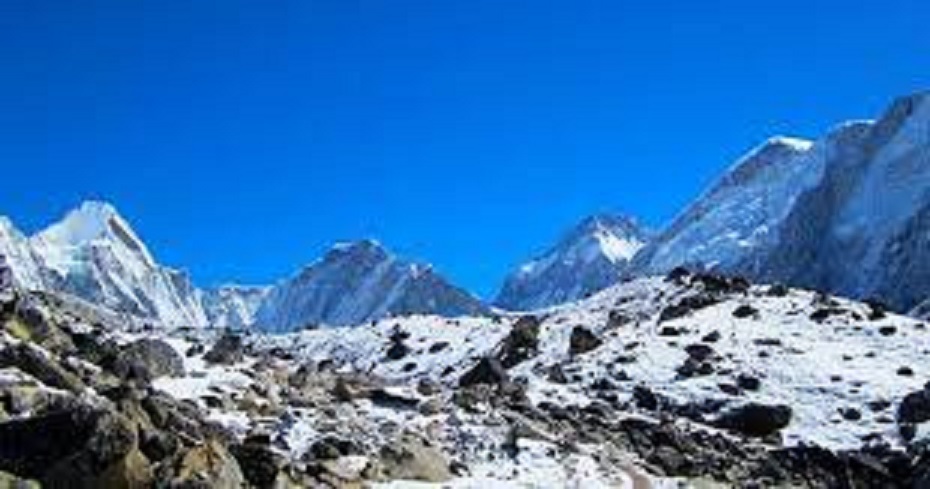Getting fit for Everest Base Camp Trekking is important if you want to get the most out of your trip. You need to make sure that you get your strength and cardiovascular training in before you leave on your trip. You also need to get prepared for the altitude sickness that you may experience during your trip. You should also try to imitate the type of activity that you will be doing while you are on your trip.
Strength training
Getting physically fit before a Luxury Everest Base Camp Trek will make it a lot more enjoyable. Getting fit also helps to prevent injury and keeps you in good health.
There are several options to get fit for a trek to Everest Base Camp. You can go for a long hike in the mountains, join a gym, or do some bodyweight exercises.
Everest Base Camp treks are not very strenuous. You can begin to train about six to eight weeks before you leave. Start slow, and be sure to stretch after each exercise.
When you’re trekking at high elevations, your body needs to adjust to exercising under low oxygen conditions. You may need to increase the duration of your workouts or increase your intensity. It’s important to remember why you’re training.
Your body will carry you far when you exercise regularly. However, if you don’t get physically fit before a trek to Everest base camp, you may find that your mind will stop you from reaching your goal.
Cardio workouts
Those who are planning to hike to Everest Base Camp should consider some cardio workouts. These can make the trek more enjoyable and lessen the risk of injury.
You should consider doing at least three cardio workouts a week. Try jogging, cycling or swimming. These cardio workouts will raise your heart rate and make your body work harder while using less oxygen.
Another option is strength training. This will help your body get through the bumpy trails. You will need to strengthen your shoulders, back, legs and core. You can do this at home or at the gym. You can also get a training partner to help keep you motivated.
You should start training several months in advance of the trek. Start slow and steady. This will help your body get used to the lower oxygen levels and reduce the symptoms of elevation sickness.
A good strength training workout should include at least two full body strength workouts a week. You can do squats, deadlifts and step ups.
Imitate the type of activity you will be doing on the trek
Taking the time to mimic the type of activity you will be doing on the Everest Base Camp Trekking is an important part of training. This will not only make your trek much easier, but it can also help to keep you out of trouble.
Hiking at high altitude requires training your body to use oxygen efficiently. The most efficient way to train for this is by exercising in low oxygen conditions. You can do this by walking a long distance, swimming, and even running a treadmill.
You should also do strength training. You can build your body’s lower body strength by doing lunges and deadlifts. You can also increase your upper body strength by performing strength training exercises such as pull ups and push ups. You can also do a full body strength workout once or twice a week.
Hiking at high altitude requires you to carry a heavy day pack. This pack needs to be filled with the right equipment to help you reach Everest Base Camp. If you don’t have the proper equipment, you could end up getting hypothermia or hurting yourself.
Altitude sickness
Getting fit for Everest Base Camp trekking is an important step before you begin your adventure. This trek is very physically demanding and if you do not exercise, you risk becoming ill at the high altitudes.
There are several ways to get fit for Everest Base Camp trekking without altitude sickness. These methods include staying away from alcohol and cigarettes, drinking lots of water, and avoiding extreme dehydration.
You can also prepare your body for high altitude treks by exercising at an altitude gym. The gym simulates the environment at high altitudes and you will experience lower oxygen saturation. This can cause you to feel short of breath, so be sure to have an oximeter on you at all times.
You should also train your body for the steep inclines that will be found on your trek. Exercises like lunges and step-ups are great for building strength in the lower body.










There is definately a lot to find out about this subject. I like all the points you made
Very nice blog post. I definitely love this site. Stick with it!
It’s nice to see the best quality content from such sites.
There is some nice and utilitarian information on this site.
Thank you for great information. I look forward to the continuation.
We always follow your beautiful content I look forward to the continuation.
Comments are closed.